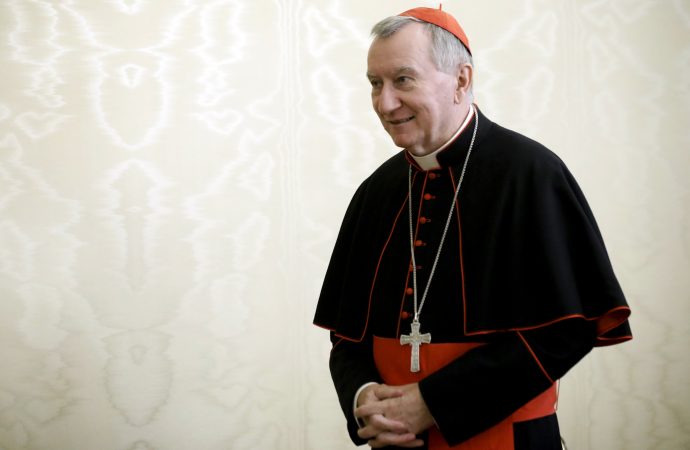This past Sunday in the modernist liturgy, it was the Feast of the Holy Family, and today in most places, the Wise Men from the East were held up at the border crossing and are a day late. The transfer of Epiphany off of January 6 is an absurdity that the Bishops have foisted upon the Catholic people. In some years as when Christmas falls on Saturday, it is as early as January 2 and as late as in 2017, as to January 8. At least in 2019, the Novus Ordo will get it correct as Epiphany, January 6, will actually fall on a Sunday.
Returning to the Feast of the Holy Family, why was the Feast on the First Sunday after Epiphany and why should it have never been transferred?
Until it was placed on the calendar by Benedict XV, the Sunday was known simply as the First Sunday After Epiphany. Interestingly, the Gospel for that Sunday, is the finding of Jesus in the Temple, the same as it is now for the feast. The Mass for the First Sunday still exists and is moved to the next ferial day on the calendar.
The problem with the move is that the liturgical time of Christmastide concerning the life of Jesus is sequenced. We have come through the Expectation of Our Lady the week before Christmas, the Nativity, the Holy Octave Day where we recall Our Lord's circumcision and then his naming is celebrated on Holy Name Sunday, or January 3 depending on the calendar, and then the great Epiphany or manifestation. The revelation of the young Jesus to the scribes of the Temple was a "manifestation." The whole Gospel narratives and propers from this first Sunday up to the Gesima Sundays recall this. From the manifestation to the Gentiles at Epiphany to the Jews on the First Sunday, the liturgical integrity was kept intact by the Feast of the Holy Family. From there, we have long had on January 13 the Baptism of the Lord, moving to the Wedding Feast at Cana on the Second Sunday and then on the Third, the curing of the leper and the faith of the Centurian and cure of his servant. On the Fourth Sunday, we read of the storm when on the boat Jesus quieted the waters. These are all recalled in the great hymn,
Songs of Thankfulness and Praise. All "manifestations" of Jesus to the Gentiles, the Jews, the Apostles themselves.
The moving of the Feast of the Holy Family in the modernist rite is an elimination of the loss of the liturgical harmony of the season and one more reason to abandon it for the traditional and proper Roman Rite if at all possible.
For more reading:
http://maternalheart.org/epiphany.html
However, the Light did not come to illuminate one nation but all, and so on the Feast of the Epiphany we celebrate His first manifestation (epiphaneia) to the Gentiles, the three Magi who followed His star from the East. This manifestation also leads us to consider other "firsts" -- the first manifestation of His mission at His Baptism and the first manifestation of His power at the wedding of Cana. Hence both are also remembered on the Feast of the Epiphany. Those manifestations, especially at His baptism, are recalled again on the Octave-Day of the feast a week later.
According to the Mosaic law, a Hebrew boy was not part of the family until he was circumcised eight days after his birth; only then was he given his name, i.e., his identity as an individual and as a son of Abraham. It is appropriate, therefore, that any celebration of the Holy Family take place after the celebration of the Circumcision and the Holy Name.
Given this build-up of revelation it might seem strange that the Feast of the Holy Family (held on the first Sunday after Epiphany) is celebrated so late in the cycle. Why, for example, does it not occur on the first available Sunday after the Nativity, when the Holy Family has just been formed by the birth of the Son? The surprising answer is that the Family had not been formed by this event.
But there is a deeper reason as well. Paradoxically, it is only after we have contemplated the various revelations of the Light to both Jew and Gentile that we can appreciate the period of Jesus' life that is shrouded in obscurity. It is because we now know who the boy Jesus truly is that we can understand the importance of His family and the excellence of His so-called hidden life. Like the shepherds of Bethlehem, we now recognize Him as the Messiah for whom the Jews yearned; like the Magi, whose gifts bespoke their convictions, we now recognize Him as a King worthy of gold, as God worthy of frankincense, and as the Suffering Servant to be one day buried with myrrh. And like the Blessed Virgin, who -- as we learn from the Gospel on this feast-- kept all these things in her heart, we are now in a position to appreciate the unique role of His Holy Family in the economy of our salvation.
 I expect that little Bishop Timmy Harris will block me soon on Twitter.
I expect that little Bishop Timmy Harris will block me soon on Twitter.







